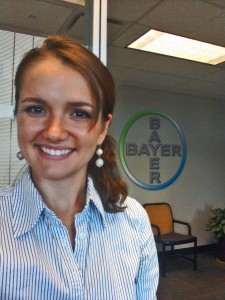Dr. Joseph Barber
Well…, that statistic is 100% accurate, as you have probably noticed during this election season. Here are a couple more common, career-related statistics we can take a closer look at.
1) Recruiters spend on average only 6.5 seconds reviewing each resume. I have seen various different versions of this statement…, and some are generous enough to give you up to 30 seconds of a recruiter’s time. Is this accurate? Yes, no…, maybe. Who knows…, but if you put yourself in the shoes of whomever it is that has to read resumes, then you realize that their time is quite precious. Whoever is reading your resume probably has a busy day ahead of them, because if they are reading yours, then chances are they are reading many, many more. In a competitive job market, it is not uncommon to have 200 or more submissions for a job. I have heard this from people in both the academic and non-academic job market. With the best intentions, people reading resumes want to give each one a fair shot…, but toward the end of the process they are probably job hoping and praying that whoever wrote the resume has actually read even just part of the job description.
Depending on the industry, you can actually be quite discerning in 6.5 seconds. If the job you are applying for is a project management position, and the word “manage” and “project” does not appear on the first page, then this might result in your application heading towards the wrong pile (the “no” pile). Chances are that you have “managed” many “projects”…, but do you try to use the language the employer uses in their job description to describe your experiences in your resume? If not, then eliminating this simple disconnect between your experiences and what an employer is looking for will mean that within 6.5 seconds the person skimming your resume will know that yours is worthy of a more thorough read.
If the job you are applying for requires attention to detail or the ability to communicate effectively, and the person reading your resume spots an obvious typo or can’t even see the typos (or your relevant experiences) because the way you have formatted your resume makes it impossible to read (e.g., tiny text, no margins)…, then 6.5 seconds could be all someone needs. If you are not sure what might give someone the ability to make a decision about you in 6.5 seconds, then come chat with an advisor at Career Services. We’ll tell you that recruiters and other people looking at resumes really do want to spend a much longer time looking at people’s resumes…, if only they would make it easy for them to do so.
2) You can be almost 100% certain that if you don’t apply for a job you won’t get it. I say “almost” here because I worked with someone at Disney’s Animal Kingdom who was in their 40’s, and who had never actually formally applied or interviewed for any of the jobs/internships she had had. While somewhat of an outlier in terms of what her job was (everything from an intern working with Temple Grandin, dolphin trainer, behavioural consultant, to animal care/behavioural husbandry manager), the way she managed this is absolutely right on the mark – she is a fantastic networker. It is not necessarily who she knows, but rather who knows her. Reputations matter, words travel…, and if someone with a very large and active network of contacts knows you, then this can mean that you can become well-known, and even world-renown, even if your own network is still quite small.
You probably won’t end up with a job you don’t apply for, but you really shouldn’t apply for every job out there. It takes a lot of time to put together an effective job application – come and see us, and we’ll tell you why, and how you can use your time efficiently. You’ll likely be better off sending out a much smaller number of nicely tailored applications, rather than 100 applications thrown together at the last minute.
3) Four out of five dentists prefer Colgate…, or was it Crest…., or perhaps Aquafresh? Well, it was probably a made-up statistic anyway, and since I can’t even remember which brand they did prefer (and perhaps it was gum, not toothpaste), I’m not going to worry about this one.



